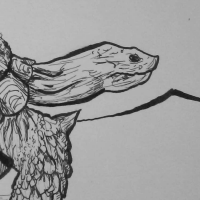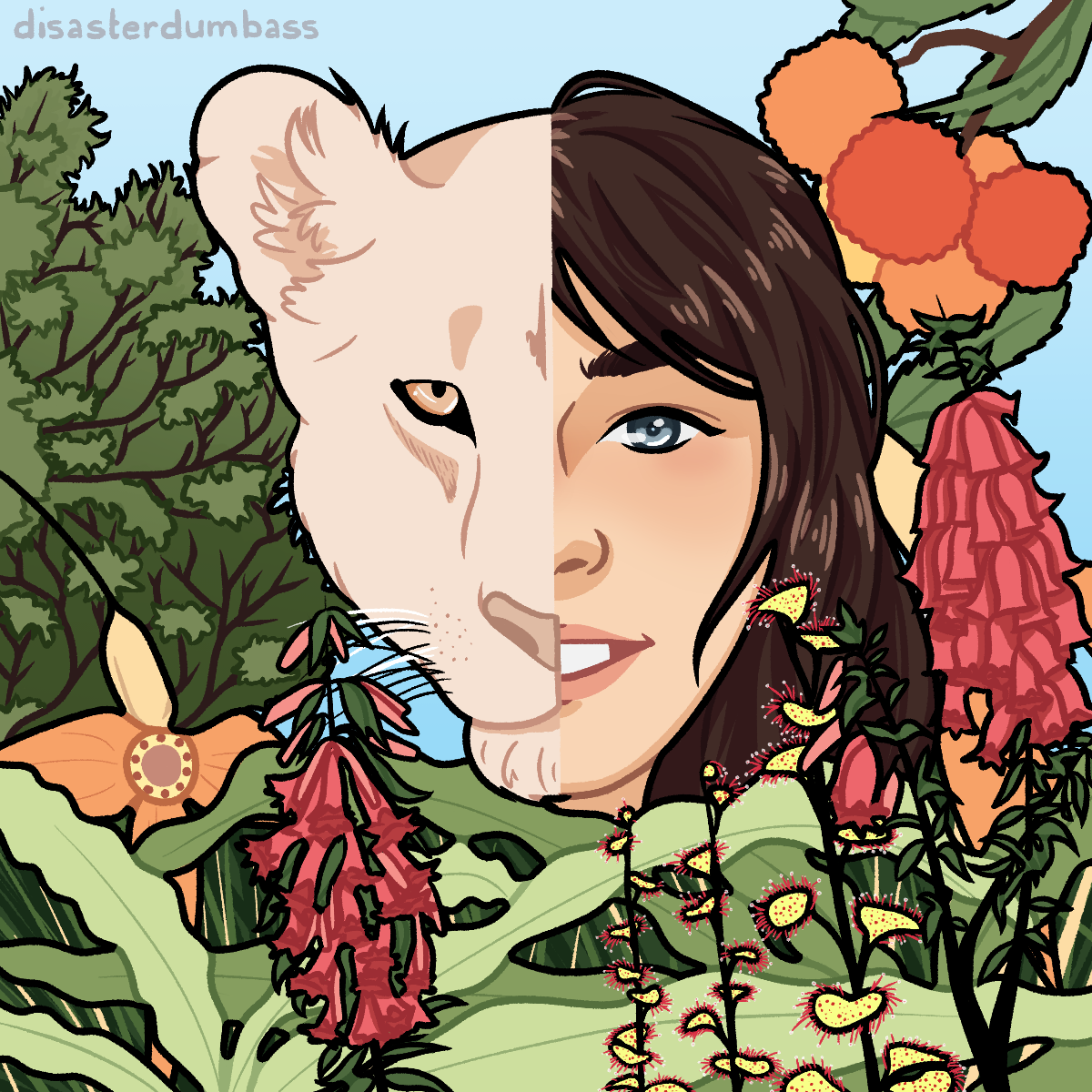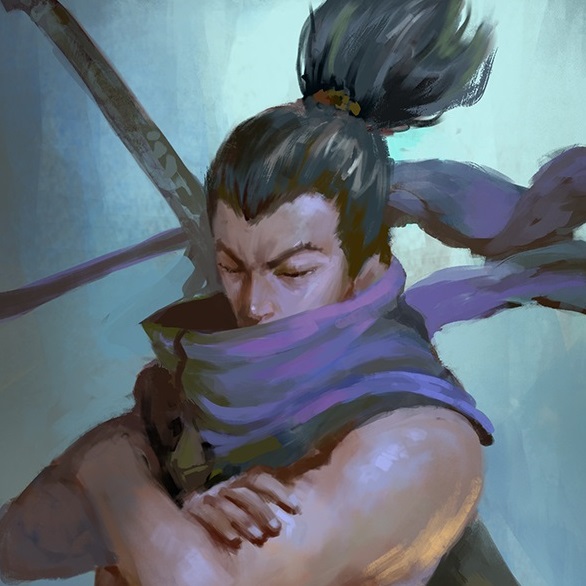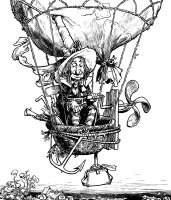Behind their masks of jest and joy lies despair and sadness for what they have lost, and fear for the future. It was until not so long ago I would have called them friends.
Within Rqet, Romtol is second only to the nation of Rektouzk in size. Within its borders live the Tollouchi, an exuberant and industrious people on the surface— and fatalists underneath— whose architecture and craftsmanship is famous the world over. Comedians, actors, and playwrights— the citizenry of Romtol enjoy any distraction and escape from the realities of the world they live in.
A Home Destroyed
Occultists, madmen and madwomen, knew of a way— or thought they did. A small group of individuals— twenty in number— shared a dream the following night. In this dream, a shrill cacophony of voices— as if a million entities spoke at once— rattled through their minds telling them of a ritual which could transform the jungle into a field of great wooden spires. Some tried to pass the dream off as just that— but it repeated itself each night until those that doubted began to chant unwillingly in their waking hours in a tongue they did not know.
Shuu'lnugt om, naelz gorth'nm. Gryiinph, gryiinph! Phtyn gnagran gryiinph. Hou rob'eb, nuzog garuum.
Unable to ignore their glimpses into the strange, alien powers that are enmeshed within the laws of the universe— they decided to forgo experimentation, and went to the capital itself to conduct their rituals. As they performed the rites— their bodies almost moving of their own accords— a terrible noisome wind shook the treetops from below. Clearly, it had to have been working! Then the screams began. The light seemed to be sucked out of the surrounding area— as if it was a mere blanket— and they were plunged into an all-consuming darkness blacker than the deepest caves they had ever seen.
Just as suddenly as it had began— it stopped. There were no more screams, yet still no light— they could merely feel a sensation of growth and pain. The people of the once great Romtuun capital had become the trees they wished to create— their roots always growing outwards, expanding without end— sprouting new trunks where able.
Other settlements fell in the following days, overgrown and crushed by the cursed wood. Seeing the encroaching plants that would soon be upon them, the next settlement set alight the jungle they called home in desperation. The fire spread quickly, as this was during the summer months, and the cursed woods' march was delayed. The majority of Puloum had been destroyed in the process.
Those that survived left the treetops— not knowing what caused the terrible incident, believing that it could happen again at any moment— and began to build anew on the ground floor. What hadn't been burned was felled, and it wasn't long until the cursed woods— now known as Rotomul— snuck upon their cities once again. A tradition began, and every year the living forest is burnt back.
Governing Structure
Pomm
Romtol is led by a monarch, called the Pomm, who is decided by victory within a series of hextennial trials known as the Gounom. This event is held within a great arena in the capital of Romm, and is viewed as a great spectacle for the public to enjoy. Trials include foot races through fiery tracks, improvisational acting, gladiatorial combat, and more.The Pomm can declare war, ally with other nations, and handles foreign policy.
The four families
A panel of four judges— seated by representatives of Romtol's four eldest lineages— decide on the winner of each trial, and the ultimate victor. The heads of the four families preside over the nation in four split counties— in which they elect their own regional leaders.The Pomm holds veto power over their decisions— though they rarely oppose the families as this is deemed unwise. An uncooperative Pomm may find themselves quickly and quietly replaced.
Architecture
In pursuit of this ideal, Romtuun settlements are tall, and great terraces of wood snake throughout— like artificial hills. Grand entrances dot the edges of the terraces, and most structures are built hanging from the ceilings within. On the outside, long platforms extend from the edges, allowing structures to be built from underneath. Towers, windows, and other structures break through the wooden surface.
Long stretches of thin wooden platforms kept a couple yards above the surface wind through their streets, as well as over, under, and around structures. The Tollouchi are adept climbers, and this allows for great mobility throughout their settlements. Trees are planted and grown where possible, but are isolated from one another in stone containers. Guards are sent to check on them periodically— ensuring the curse does not begin anew.
Assets, Industry, & Trade
From craft to coin
Some high-level Rektouzk mercenaries will even commission Romtuun smiths to forge their equipment.
Inadvertent fertility
Agile Armies
You may believe the enemy to be helpless when knocked to the ground— but then the blasted fool makes a mockery of you as they walk on their hands— and pull a dagger to your throat with their feet.
Uniforms tend to be bright and colorful, mostly wooden or leather, with small pieces of embedded metal only covering key areas. Mail is often worn underneath the breastplate. Skirts of mail, with bright cloth woven throughout, and a leather belt fastening it to the body serve to protect the upper legs. Many choose simply to fight shirtless, shaving the hair over their bodies into various patterns as a sort of reverse war-paint.
Common weapons include elegant curved shortswords which grow wider at the end, and are cut flat at the top— creating a surface that can not only cut, but defend, and deflect to an extent. Spears, and curved polearms called Modoul are oft wielded, as well. For ranged fighting, javelins are more typical rather than arrows.
Religion
With this terrifying prospect in mind, many Romtuun seek to fill their minds with something— anything— but the reality that faces them.
Education
Kondil mondol gonm.
A preliminary attack
The bordering nation of Louh, to the north, has an unfortunate history of kidnapping citizens of other nations for use in alchemical experimentation.Some are harvested for their various body parts, to be brewed into new concoctions— and others are used to test these concoctions, among other various brews.
Members of the four families— and once, even a Pomm— have been kidnapped in the past, sparking war. Throughout history, Romtol has either feared or hated Louh— sometimes both.
Now with the mad king having usurped the throne, kidnappings along their borders have increased— and some Romtuun believe it is merely a matter of time before they launch a large scale invasion.
The solution
The Romtuun wish to end this war before it begins— and to do so, have planned a surprise attack that should not only demolish Louh's capitol— but end the mad king's reign of terror.A mining outpost has been established within the dark depths of Tchaoxlik— and flocks of miners work tirelessly, hoping to excavate a tunnel that reaches beyond the Xhouli River, and brings them underneath Louh's capitol of Neulo.
An upward path will finally be excavated, then, explosives will be placed— and set off.
The question is whether they will be able to excavate the tunnel before Louh attacks.










This article is very imaginative. I thought the origins of Romtol and the living forest was especially creepy (as well as the nice detail about the screaming faces seen in the wood.) I also really liked you description of the army and their fighting style. I was surprised that you referred to the subjects which are frequently taught here as "less than relevant." It sounds from the description of the culture and the location that these may actually be the more relevant subjects for the people who live in Romtol. After all, they are artisans who live in nature. Perhaps you meant that the subjects they learn are considered less than relevant by outsiders? If so, I think you might add a sentence to clarify.
Good point! I was tired by the end of writing when I got to there. Yeah, that'd be in the context of outsiders.
Thanks for the clarification. :)